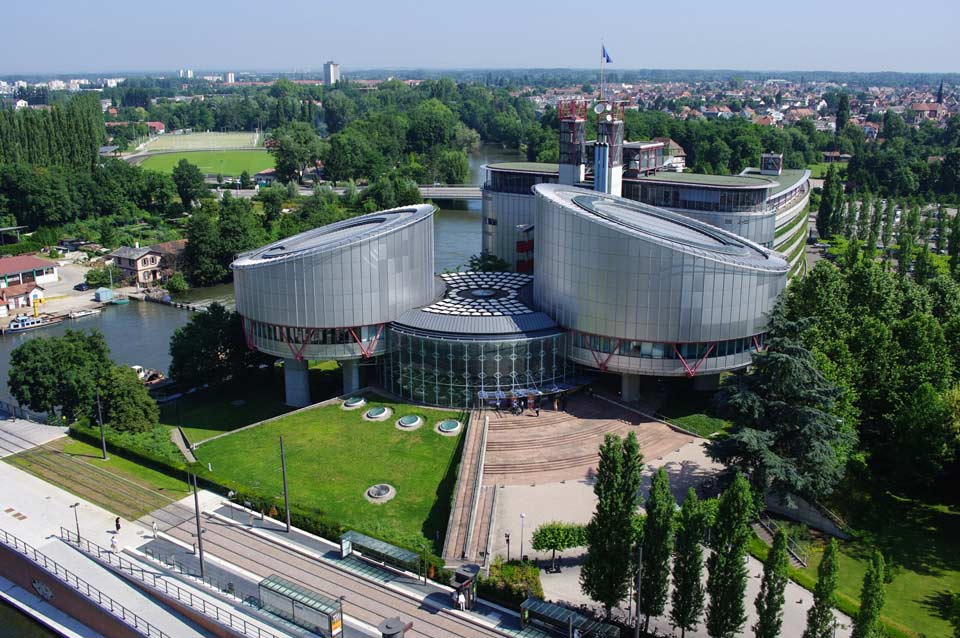
On February 16, 2023, the European Court of Human Rights published its judgement in the case Ochigava v. Georgia, which confirmed the torture and ill-treatment of prisoners in Georgian penitentiary institutions until 2012 “was a systematic problem for the entire system.”
The Ministry of Justice of Georgia reports that “the above judgement of the European Court is based on the information provided to the court by the applicant, Akaki Ochigava, as well as reports and documents published based on the fact-finding visit of the Public Defender and non-governmental organisations, the European Committee for the Prevention of Torture and Inhuman or Degrading Treatment or Punishment (CPT), and the Parliamentary Assembly of the Council of Europe, as well as decisions of national courts. In addition, the European Court reviewed footage published in the Georgian media in September 2012 about the ill-treatment/torture of prisoners in various prison facilities, including Gldani prison (Penitentiary No. 8 (“Prison Scandal”).
The Strasbourg court’s decision proves once again that the torture of inmates in Georgian prisons was systemic, notably in the following ways:
The beating of newly arrived prisoners was routine practice in Gldani Prison – the so-called “quarantine procedure;”
The systematic beating of prisoners several times a week;
Regular and arbitrary placement in either a place of solitary confinement (karzer) or a small detention cell (fuks) for several days. The karzer was a cell measuring ten square metres and containing no furniture apart from a folding metal bed. During the day, the applicant had to sit on the cement floor, as the bed was folded and attached to the wall with a lock, unlocked only between 10 p.m. and 8 a.m.;
As for the fuks, this was an even smaller cell, measuring four square metres and containing no furniture. When several inmates were placed in the fuks, they all had to stand the entire time because there was insufficient space for them to sit on the floor.
Restriction of food intake and toilet use for prisoners;
Permanent restriction of meeting with family members;
There were also a few occasions when the prison officers put a special helmet on the inmate’s head which placed a ball in his mouth and thus prevented him from speaking.
The prisoners were only allowed to whisper and could not speak at a normal volume amongst themselves.
According to the Justice Ministry, the goal of this mistreatment was to force the prisoners to obey and cooperate with the prison administration. The complainant, Akaki Ochigava, has experienced these forms of torture.
Furthermore, the complainant regards the two November 2011 incidents. The applicant received a particularly severe beating from the prison officers at the very beginning of November 2011 and consequently, his spine was so badly injured that he lost the ability to walk. After appealing the accident, an investigator allegedly advised the applicant to say that he had fallen out of bed. As the applicant initially refused to sign such a statement, the investigator called prison officers to the interview room. The officers took the applicant to a different room and broke most of his fingers by hitting both of his hands with a baseball bat. After that interview, the applicant was returned directly to his cell without being provided with any medical treatment. There was also another episode of ill-treatment when the prison officers stripped the complainant naked in the shower room, splashed him with cold water and beat him severely with truncheons. After yet another incident of ill-treatment in the shower room, which ended with the applicant fainting as a result of a severe beating, the applicant regained consciousness and found himself being handcuffed to a pipe in the prison morgue among dead bodies.
As a result of the incidents, on March 28, 2014, the applicant was classed as having a permanent disability.
According to the Justice Ministry, the ECHR ruled that inmates were subjected to “systematic ill-treatment” on part of prison officials.
The court also found that “the aim of the officers’ systematic abuse of the prisoners had been to instil fear and thus obtain their complete submission and therefore control.”
It is also noteworthy that victims remained remarkably quiet about instances of torture, both to impersonal and personal (family) contacts. This is partly due to lack of hope to improve the situation, fear of further punishment, and ineffectiveness of protection mechanisms.”
However, according to the prosecutor, following the prison scandal and the October 2012 change of the government, the complainant felt safe enough to file a complaint about ill-treatment in Gldani prison.
As a result of the Georgian Prosecutor’s Office’s investigation, several people were charged with the torture of Akaki Ochigava in 2017, and the defendants were found guilty by the Tbilisi City Court on February 6, 2018. The Tbilisi Court of Appeal and the Supreme Court of Georgia upheld the ruling. Akaki Ochigava, an ex-convict, was among those identified as a victim in this case.
Despite the foregoing, the European Court found flaws in the procedural part of Article 3 of the Convention (obligation to investigate), because the arrest and trial of the responsible persons actually happened 5 years after the occurrence of the contested facts, which was considered a long time for the execution of justice. The court granted the claimant EUR 20,000, as the applicant claimed in respect of non‑pecuniary damage,” the Ministry of Justice reported.








